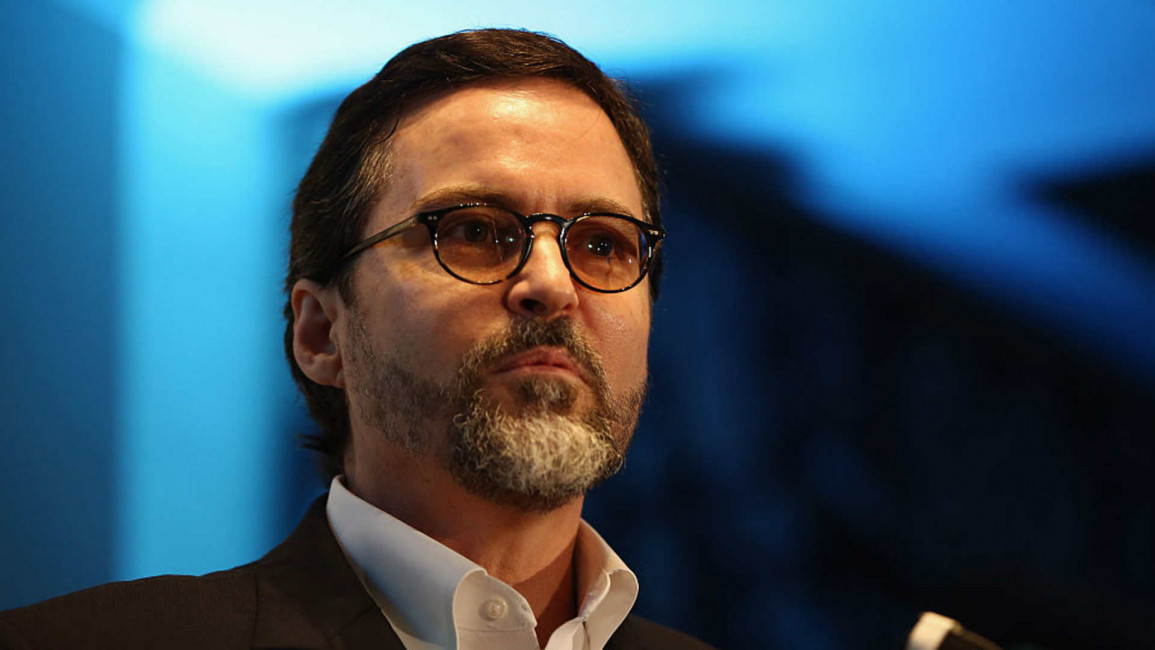
Hamza Yusuf is not your friend
The Commission was given the haughty charge of "fresh thinking about human rights discourse where such discourse has departed from our nation's founding principles of … natural rights".
At first glance, this might sound harmless, but the statement of intent doesn't outline exactly what aspect of "human rights discourse" has "departed" from the "principles of natural rights".
In fact, given that a globally-accepted definition of human rights already exists, the Commission sounds all too much like an attempt by the Trump administration to redefine and undermine human rights.
The composition of the CUR points to this, dominated by conservative religious academics, scholars and intellectuals. It's possible that the Commission might set out to reshape the definition of "unalienable rights" along the lines of Trump's alt-right agenda, with LGBT rights and women's reproductive rights obvious targets.
But the inclusion of one specific member bodes ill for US Muslims, the minority which - with the 'Muslim ban' and the inclusion of vicious Islamophobes among his administration - has become a primary target of Trump's fascistic political ire.
The member in question is 'Sheikh' Hamza Yusuf, an American convert to Islam who has been described as "perhaps the most influential Islamic scholar in the western world".
It's simply unfathomable to many Muslims - in America and abroad - that any Muslim scholar would want to work with an administration that has been so openly hostile to Muslims and Islam.
 |
The Commission sounds all too much like an attempt by the Trump administration to redefine and undermine human rights |  |
Moreover, Trump is happy to materially and diplomatically support a host of countries that viciously abuse human rights, and the rights of Muslims in particular.
The opposing argument to this, of course, is that the participation of a Muslim American like Yusuf could protect the community who might otherwise risk assault from this Commission.
This would be compelling only if Yusuf didn't have a history of facilitating, appeasing and championing causes intimately tied with Islamophobia or actions that would hurt Muslims, while urging Muslims not to involve themselves with political causes against the political establishment.
Twitter Post
|
I first became aware of Yusuf when he was the only Muslim to essentially endorse George W. Bush's criminal, murderous and generally devastating "War on Terror" following 9/11.
One of the most infamous incidents regarding Yusuf's meeting with Bush in this period was him taking the then president to task for naming the US invasion of Afghanistan "Operation Infinite Justice".
Yusuf claimed Muslims would be offended by such a name, given Allah was the sole arbiter of justice and thus advised that the name ought to be changed. Bush listened to him and renamed it "Operation Enduring Freedom".
Yusuf was pleased.
Forget the untold number of innocent Afghans that would be killed due to the invasion of the already broken Afghanistan, something warned of by the UN commission at the time, Yusuf only cared about the name under which Bush chose to carry out this seemingly never-ending crime.
It's from this point that Yusuf gained a reputation as the kind of Muslim who Islamophobes and supporters of the War on Terror could like.
Yusuf had nothing to say about the assault on civil liberties, and human rights, that swept the world during the War on Terror era - nor was he ever going to link any of this to the huge growth in Islamophobia around the world.
On the contrary, he was preaching a message, adored by Islamophobes, that a Muslim politicised against the War on Terror and its Islamophobic consequences was akin to an extremist.
 |
Yusuf gained a reputation as the kind of Muslim who Islamophobes and supporters of the 'War on Terror' could like |  |
But he also became a convenient Muslim voice who would advance the agenda of US allies in the Muslim world, most notably the autocrats, theocrats and gross human rights violators in the UAE and Saudi Arabia.
In the post-Arab Spring era, the intermixing of the agenda of autocracy in the Arabic-speaking and Muslim world and western Islamophobia is of the utmost importance. We've seen how Islamophobic fascists and extremists in the West, ranging from Marine Le Pen to Donald Trump, have come to support the Sisi regime and his efforts to overthrow democracy and target the Muslim Brotherhood for their advocacy of Islamic democracy.
Read more: Using Israel to justify his racist attacks, Trump sets a dangerous precedent
In short, what they support is persecution of Muslims who strive for true socio-political agency, believing instead that Muslims ought to be ruled by authoritarian tyrants lest the result be 'extremism'. For Muslims in the West, this means a demonisation of any activism they engage in that runs contrary to the ideology of the hard-right or, more generally, "the nation".
This isn't just the preserve of the far-right - we've seen President Emmanuel Macron talk about the necessity of defining some kind of "French Islam". French Muslim activist Abdelaziz Chaambi described this as an attempt to "control, guide and direct Islam as [Macron] wishes", while true Muslim autonomy is so insidiously tied to "radicalisation" by Macron and the far-right.
Yusuf, in the Trump era, has been a key proponent of a form of this dangerous and Islamophobic rhetoric.
Following Trump's victory in 2016, Yusuf likened the twitter-addicted racist demagogue to George Washington, while writing about the many Muslims, feminists and anti-racists who protested against Trump as "self-indulgent".
He continued that they had "too much work to do… not protesting, not lighting fires, not saying 'Trump is not my President' … He is." Yusuf then instructed people to "accept the results and move on".
 |
Nowhere has Yusuf ever publicly condemned Trump's Muslim ban |  |
At a conference called 'Reviving the Islamic Spirit', Yusuf declared of then president-elect Trump that "God is in charge… Trump is a servant of God", before defending the US police and going on a racist rant against "black on black violence" and Black Lives Matter, warning Muslims against getting involved in such pivotal anti-racist movements.
In stark contrast to this, nowhere has Yusuf ever publicly condemned Trump's Muslim ban.
Otto Weininger is notorious in history as being dubbed "Hitler's favourite Jew". The 19th century Austrian Jewish philosopher dismissed the idea that Jews had been persecuted by "Aryans" and, in a spooky though imperfect parallel with the kind of political quietism preached by Yusuf, claimed that Jews had a tendency towards immorality and thus ought not to have the same political and social freedoms as "Aryans".
The Nazis later used his work as propaganda to justify the Holocaust.
One might think that to conjure Weininger in the context of Yusuf and Trump's Commission on Unalienable Rights is hyperbolic, but we live in a world where Muslim concentration camps in China are a reality.
A world where Trump, for all his bellicosity against China on trade and economic warfare, has reacted indifferently to these camps. A United States where migrants are abused on an industrial scale.
If the Trump administration really does want to move to redefine and undermine the meaning of human rights and the rights of Muslim Americans to be politically autonomous, he could find no better a person to grant these actions a veneer of Muslim acceptability than Hamza Yusuf.
Sam Hamad is an independent Scottish-Egyptian activist and writer.
Join the conversation @The_NewArab
Opinions expressed in this article remain those of the author and do not necessarily represent those of The New Arab, its editorial board or staff.




